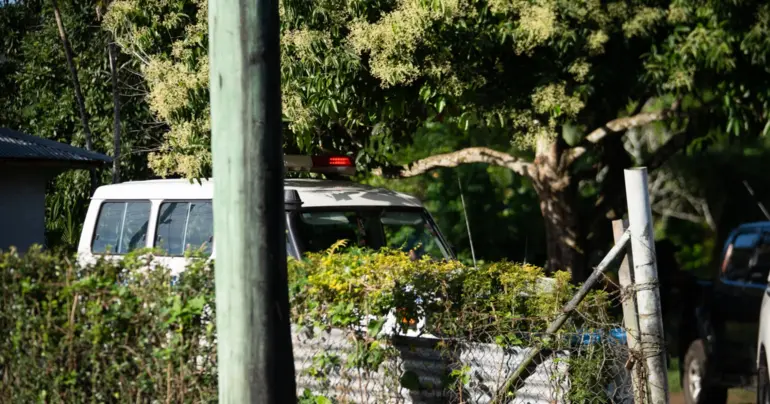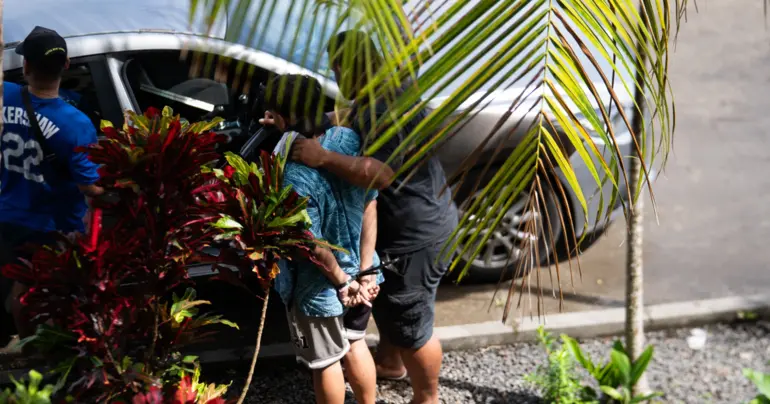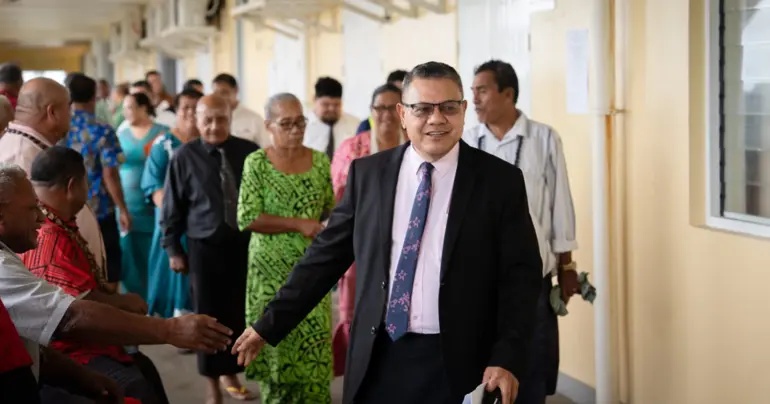Corporate liability for Covid breaches too kind
 By The Editorial Board
•
26 February 2021, 4:00AM
By The Editorial Board
•
26 February 2021, 4:00AM
Having lived through a state of emergency over the last 11 months to minimise the risks of coronavirus infection, one would have thought everyone is on the same page with the local authorities to keep Samoa safe.
There is good reason for the Government through the National Emergency Operations Centre to be vigilant, seeing how the COVID-19 pandemic continues to spiral out of control globally with World Health Organisation data showing over 100 million infections and close to 2.5 million deaths despite various vaccination rollouts.
In fact the country’s first positive coronavirus case – a 16-year-old boy who flew in from the U.S. on a repatriation flight early this month and is currently in isolation at the national hospital – is a timely reminder of how vulnerable the country is to the pandemic.
The risks that the virus poses to the nation is such that the revelation in the Thursday 25 February 2021 edition of the Samoa Observer of a breach of S.O.E. orders by the aviation company Talofa Airways is a cause for concern.
The airline was fined $6,000 by the N.E.O.C. for bringing in a pilot from Vanuatu without proper Government authorisation.
Talofa Airways Chief Executive Officer, Toleafoa Jeffrey Hunter, confirmed the breach when contacted by the Samoa Observer and added he “completely forgot” to get approval from the N.E.O.C. prior to flying the pilot back to the country.
“We understand and (of course) we’re trying to protect the country, but there are certain things (we should) use logic and common sense; don’t just stick to the (rules),” he said in an interview.
“It’s unusual times and we will just leave it as it is.”
Interestingly, Talofa Airways got hit with the $6,000 fine while Samoa Airways, whom Toleafoa claims was responsible for the pilot’s documentation, got away scott free.
One question that should be asked in relation to this issue is whether Samoa Airways is also complicit and consequently should also be fined?
Surely Toleafoa’s reference to the involvement of Samoa’s national airline are grounds for the State-owned airline also getting penalised.
“But I didn’t know this (pilot) was coming. When I got (to Vanuatu) and was told this (was) a Samoa Airways (staff member) and he’s got his airfare and I just wanted to sight his documents,” he said.
And what about the $6,000 fine that the N.E.O.C. ordered Talofa Airways to pay as a penalty for breaching S.O.E. restrictions by bringing in the pilot without authorisation?
Don’t you think the amount of the fine is a slap on the wrist for an aviation company that blatantly breached COVID-19 restrictions?
We ask these questions while being cognisant of the stiff penalties that other countries have introduced for coronavirus-restriction breaches, especially for serial offenders and businesses that breach the restrictions.
In Singapore first-time offenders face six months imprisonment or a fine up to SG$10,000 ($18,200 tala) or both and serial offenders up to 12 months jail or fines up to SG$20,000 ($36,000 tala) or both. And in the United Kingdom businesses could be hit with a fine in court of up to £10,000 ($32,000 tala) if in breach.
Perhaps, the lessons that the local authorities could draw from this saga, is that corporate liability for breaches of coronavirus restrictions currently in force should be treated differently and have more weight to deter offending.
It would be remiss of us not to factor in the role of Samoa Airways in this saga and whether it too should be fined – but as we have highlighted over the years in editorials on the national carrier – ultimately all unbudgeted cost that this Government-owned entity is forced to foot comes out of the taxpayers’ pockets.
Next month Samoa is expected to receive more repatriation flights from the U.S. and Auckland, which would see more people going into quarantine at the various undisclosed quarantine locations in Upolu.
The country’s first responders led by the N.E.O.C. will again go through the tedious process of subjecting each passenger to COVID-19 tests and monitoring them individually over the mandatory 14 and 21-days quarantine period.
It is a disservice to these hardworking men and women, when members of the public or public or private sector organisations chose to flout the rules, knowing fully well that the systems and processes were put in place to protect the nation.
 By The Editorial Board
•
26 February 2021, 4:00AM
By The Editorial Board
•
26 February 2021, 4:00AM










